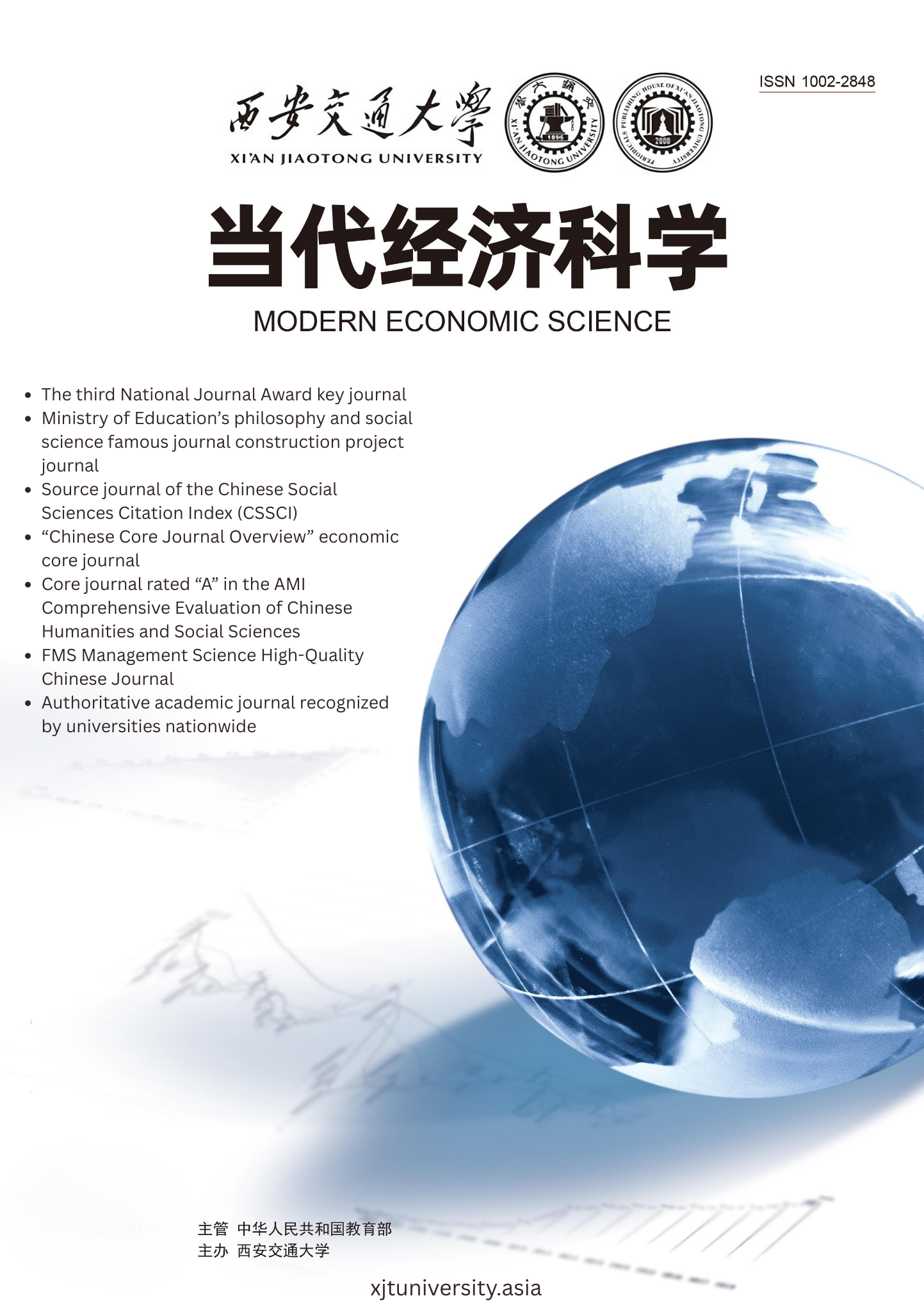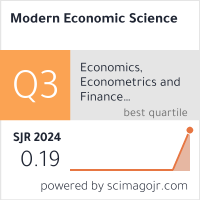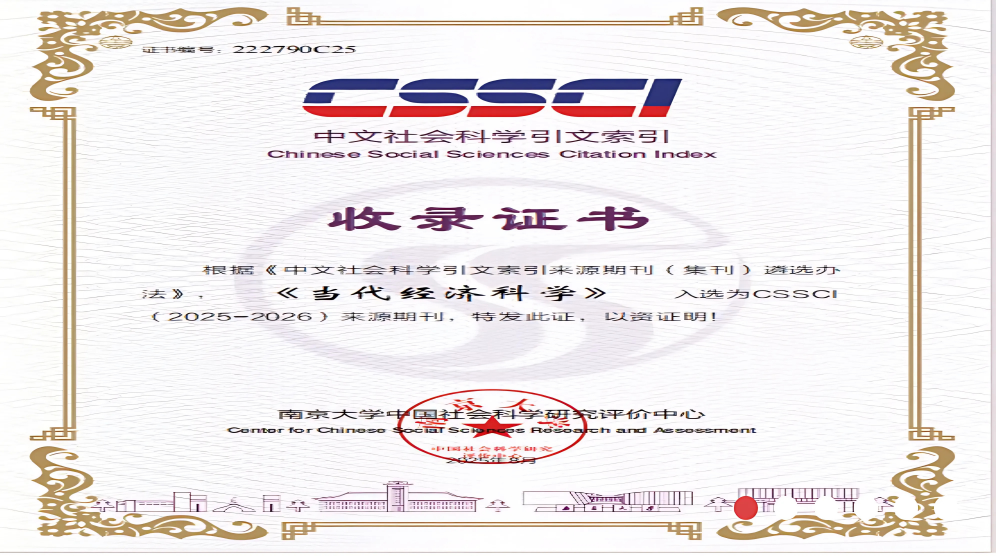Green Governance, Technical Progress and Employment
DOI:
https://doi.org/10.20069/6mby0552Keywords:
green transformation, green governance, employment, technical progress, technical efficiencyAbstract
In the context of low-carbon economic transformation, achieving a win-win situation for corporate green governance and employment is currently a challenge for China’s development. While existing literature predominantly addresses the influencing factors on employment and the economic and environmental benefits of adopting green governance, limited attention is given to its social benefits, particularly its impact on employment. This paper addresses this gap by analyzing the influence of green governance on employment through the lenses of social identity theory and cost theory. Further, the paper builds a two-sector model including the polluting and non-polluting industry to verify the technical progress mechanism between green governance and employment. The model analysis suggests that, technical progress is an important channel connecting green governance and employment, and the technical progress mechanism varies between the heavy pollution industry and non-heavy pollution industry.
Empirically, utilizing firm-year financial and environmental data sourced from CSMAR and WIND databases, this study constructs a corporate green governance index employing the Janis-Fadner coefficient method. Total factor productivity is employed to gauge technical progress, with the DEA-Malmquist approach facilitating the decomposition of technical progress into technical and efficiency changes. Through OLS regression, the impact of green governance on employment is examined, with the mediating effect of technical progress tested.
Empirical findings indicate a significantly positive relationship between corporate green governance and employment, with technical progress mediating this association. The conclusion is still valid after the robust test by considering the endogeneity of the model and replacing key variables. We also find a divergence between the mechanism of green governance impacting employment for the heavy pollution industry and non-heavy pollution industry. Specifically, technical change shows a suppression effect in all sectors, while efficiency change has a positive mediating effect in the non-heavy pollution industry.
This study contributes to the literature on the following three aspects. Firstly, the study extends existing concerns of economic and environmental to social benefits of corporate green governance. Secondly, the study provides a theoretical explanation for the underlying mechanism of technical progress. Thirdly, the study examines the heterogeneous effects of green governance on employment between the heavy pollution industry and non-heavy pollution industry.
In conclusion, this paper sheds light on how corporate green governance promotes employment and its mechanism, and provides valuable implications for enterprises and policymakers to implement green governance and promote high-quality development.
Downloads
References
[1] Glavas A, Godwin L N. Is the perception of “goodness” good enough? Exploring the relationship between perceived corporate social responsibility and employee organizational identification[J]. Journal of Business Ethics, 2013, 114(1):15-27.
[2] 盛丹, 张慧玲. 环境管制与我国的出口产品质量升级: 基于两控区政策的考察[J]. 财贸经济, 2017(8):80-97.
[3] 李维安, 张耀伟, 郑敏娜, 等. 中国上市公司绿色治理及其评价研究[J]. 管理世界, 2019(5):126-133.
[4] 颜爱民, 李歌. 企业社会责任对员工行为的跨层分析: 外部荣誉感和组织支持感的中介作用[J]. 管理评论, 2016(1):121-129.
[5] Coelho M, Cesário F, Sabino A, et al. Pro-environmental messages in job advertisements and the intentions to apply: the mediating role of organizational attractiveness[J]. Sustainability, 2022(5):3014-3024.
[6] 汪前元, 魏守道, 金山, 等. 工业智能化的就业效应研究: 基于劳动者技能和性别的空间计量分析[J]. 管理世界, 2022(10):110-126.
[7] Fossen F M, Sorgner A. New digital technologies and heterogeneous wage and employment dynamics in the United States: evidence from individual-level data[J]. Technological Forecasting and Social Change, 2022, 175:121381-121397.
[8] 王晓娟, 朱喜安, 王颖. 工业机器人应用对制造业就业的影响效应研究[J]. 数量经济技术经济研究, 2022(4):88-106.
[9] Aragón-Correa J A, Sharma S. A contingent resource-based view of proactive corporate environmental strategy[J]. Academy of Management Review, 2003(1):71-88.
[10] Bárány Z L, Siegel C. Job polarization and structural change[J]. American Economic Journal: Macroeconomics, 2018(1):57-89.
[11] 李勃昕, 韩先锋, 宋文飞. 环境规制是否影响了中国工业R&D创新效率[J]. 科学学研究, 2013(7):1032-1040.
[12] Li D, Zhu J. The role of environmental regulation and technological innovation in the employment of manufacturing enterprises: evidence from China[J]. Sustainability, 2019(10):2982-3004.
[13] 陈静, 雷厉. 中国制造业的生产率增长、技术进步与技术效率: 基于DEA的实证分析[J]. 当代经济科学, 2010(4):83-89.
[14] 苏治, 徐淑丹. 中国技术进步与经济增长收敛性测度: 基于创新与效率的视角[J]. 中国社会科学, 2015(7):4-25.
[15] Zhang Z, Ye J. Decomposition of environmental total factor productivity growth using hyperbolic distance functions: a panel data analysis for China[J]. Energy Economics, 2015, 47:87-97.
[16] 史宇鹏, 顾全林. 知识产权保护、异质性企业与创新: 来自中国制造业的证据[J]. 金融研究, 2013(8):136-149.
[17] 赵宸宇. 数字化转型对企业社会责任的影响研究[J]. 当代经济科学, 2022(2):109-116.
[18] 牛志伟, 许晨曦, 武瑛. 营商环境优化、人力资本效应与企业劳动生产率[J]. 管理世界, 2023(2):83-100.
[19] 曾国安, 苏诗琴, 彭爽. 企业杠杆行为与技术创新[J]. 中国工业经济, 2023(8):155-173.
[20] 姜广省, 卢建词, 李维安. 绿色投资者发挥作用吗: 来自企业参与绿色治理的经验证据[J]. 金融研究, 2021(5):117-134.
[21] 王应明, 蓝以信. 基于双前沿面数据包络分析的循环全局Malmquist指数[J]. 中国管理科学, 2015(11):46-55.
[22] 戴鹏毅, 杨胜刚, 袁礼. 资本市场开放与企业全要素生产率[J]. 世界经济, 2021(8):154-178.
[23] Cao J, Luo X, Zhang W. Corporate employment, red flags, and audit effort[J]. Journal of Accounting and Public Policy, 2020, 39(1):106710-106730.
[24] 陈胜蓝, 马慧. 产品市场竞争与企业劳动力成本黏性[J]. 产业经济研究, 2014(4):60-72.
[25] 王良举, 陈甬军. 集聚的生产率效应: 来自中国制造业企业的经验证据[J]. 财经研究, 2013(1):49-60.
[26] 危平, 曾高峰. 环境信息披露、分析师关注与股价同步性: 基于强环境敏感型行业的分析[J]. 上海财经大学学报, 2018(2):39-58.
[27] Shrout P, Bolger N. Mediation in experimental and nonexperimental studies: new procedures and recommendations[J]. Psychological Methods, 2002(7):422-445.
[28] Benlemlih M, Bitar M. Corporate social responsibility and investment efficiency[J]. Journal of Business Ethics, 2018, 148(3):647-671.
[29] Rennings K, Ziegler A, Zwick T. The effect of environmental innovations on employment changes: an econometric analysis[J]. Business Strategy and the Environment, 2004, 13(6):374-387.
[30] 肖兴志, 张伟广, 朝镛. 僵尸企业与就业增长: 保护还是排挤?[J]. 管理世界, 2019(8):69-83.
Downloads
Published
Issue
Section
License
Copyright (c) 2024 Editorial Board of Modern Economic Science

This work is licensed under a Creative Commons Attribution-NonCommercial 4.0 International License.













